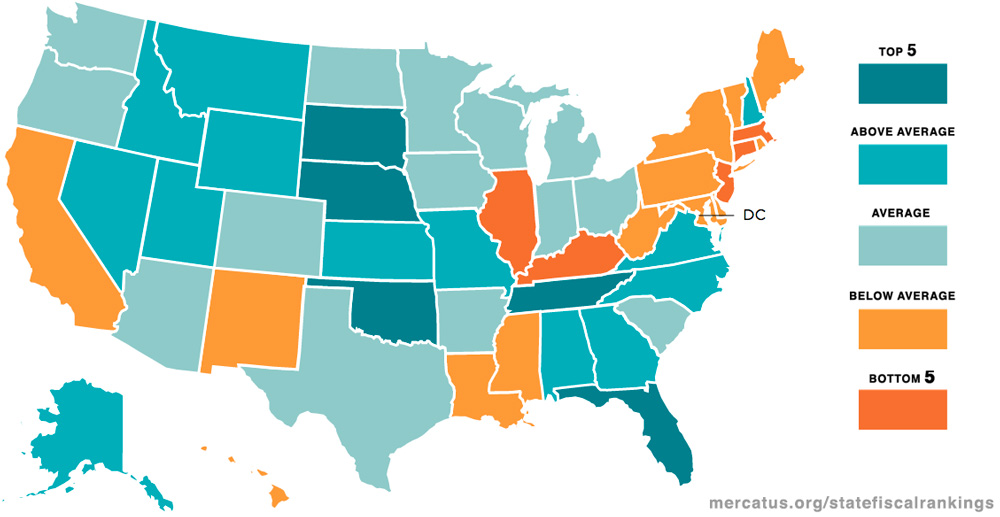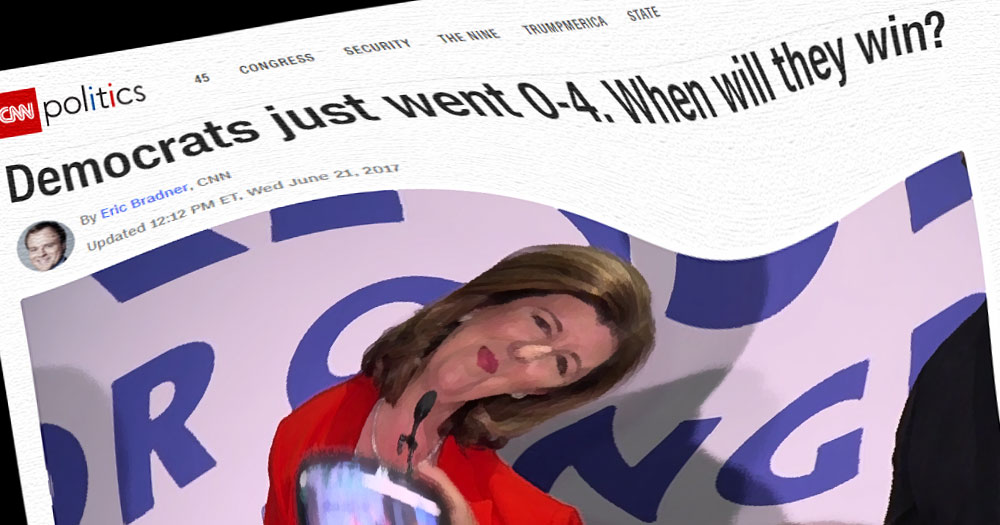Republicans have made much hay of the Mercatus Center map of our United States, colored by fiscal condition. Why? Well, nine out of the ten least financially stable state governments are run by Democrats.
But there’s another way to look at it.
“Only 15 state legislatures in the U.S. are term limited,” U.S. Term Limits President Philip Blumel writes in a letter to the Mercatus folks. “However, four of your top five fiscally healthy states are term limit states.”
And how many of Mercatus’ bottom five states possess term limits?
Zero.
That’s 80 percent of the top states from a fiscal standpoint coming from just 30 percent of states where legislators are limited. And no state with term limits can be found at the bottom of the heap.*
Now, these impressive results do not prove “that this fiscal outperformance is due primarily to term limits,” Blumel admits. Instead, they do “effectively disprove a common objection to term limits.”
Legislators sans term limits are not “too inexperienced.” Indeed, these state rankings show the suffering, instead, lopsided on the states with no limit on how long legislators can stay in office.
Blumel points out that term-limitless Illinois, with the “longest speakership in U.S. history under Mike Madigan,” ended up dead last, fiftieth.
“Legislators in term limit legislatures,” he argues, “have a broader range of experience than in non-term limited legislatures.”
Reasonable.
No extrapolation necessary, however, for the basic conclusion: State government fiscal health correlates strongly with legislative term limits.
This is Common Sense. I’m Paul Jacob.
* Mercatus’ results are no aberration. “We have seen term limit states crowd the top end of the ALEC rankings as well,” notes Mr. Blumel.
















 Lee starts off with the need to earn trust. Will many readers simply shrug? His notion of a “more open-source strategy development model that includes everyone” sure sounds nice. But after Obama’s promise of the most “transparent” presidency in history, and delivery of one of the least, skepticism is natural.
Lee starts off with the need to earn trust. Will many readers simply shrug? His notion of a “more open-source strategy development model that includes everyone” sure sounds nice. But after Obama’s promise of the most “transparent” presidency in history, and delivery of one of the least, skepticism is natural.